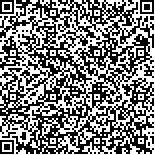| 本文已被:浏览 1788次 下载 2051次 |

码上扫一扫! |
|
|
| 1114例健康体检人群饮食习惯与中医体质类型关系的对应分析 |
|
鹿佳1, 朱燕波1, 王琦2, 史会梅1, 戴昭宇3, 石劢1, 虞晓含1, 张笑梅1, 索艳风1
|
|
1.北京中医药大学管理学院, 北京 100029;2.北京中医药大学基础医学院, 北京 100029;3.香港浸会大学中医药学院, 中国香港
|
|
| 摘要: |
| [目的] 探究饮食习惯与中医体质类型的关系。[方法] 2012年9月-2014年1月,采用横断面现场调查法收集广东、安徽两家医院1114例健康体检人群数据。中医体质调查采用标准化中医体质量表。应用构成比和对应分析法分析饮食习惯与中医体质类型的关系。[结果] 不同饮食习惯的人群中医体质类型分布特点不同。阳虚质与喜热关联性较强;气虚质、阴虚质、血瘀质与喜甘甜关联性较强;阴虚质、特禀质与喜清淡关联性较强;湿热质与喜咸、喜酸关联性较强;痰湿质与喜咸、喜炙烤关联性较强;平和质、气郁质与喜辛辣关联性较强,平和质还和喜油腻关联性较强。[结论] 饮食习惯与中医体质类型之间存在关联性。应根据不同饮食习惯的中医体质特点对人群的偏颇体质进行调护。同时,对平和质人群的健康管理不应忽视饮食调养。 |
| 关键词: 中医体质类型 饮食习惯 对应分析 |
| DOI:10.11656/j.issn.1672-1519.2016.04.03 |
| 分类号: |
| 基金项目:国家重点基础研究发展计划(973计划)资助(2011CB505403);国家中医药管理局重点学科"中医文化学"。 |
|
| Correspondence analysis of relationship between dietary preferences and traditional Chinese medicine constitution types in 1114 cases of healthy adults seeking physical examinations |
|
LU Jia1, ZHU Yan-bo1, WANG Qi2, SHI Hui-mei1, DAI Zhao-Yu3, SHI Mai1, YU Xiao-han1, ZHANG Xiao-mei1, SUO Yan-feng1
|
|
1.School of Management, Beijing University of Chinese Medicine, Beijing 100029, China;2.School of Basic Medical Science, Beijing 100029, China;3.School of Traditional Chinese Medicine, Hong Kong Baptist University, Hongkong, China
|
| Abstract: |
| [Objective] To explore the relationship between traditional Chinese Medicine (TCM) constitution types and dietary preferences. [Methods] Research samples of 1114 cases of healthy adults seeking physical were collected from a cross-sectional survey, which was conducted in Guangdong, Anhui two hospitals from September 2012 to January 2014. Constitution in Chinese Medicine Questionnaire (CCMQ) was utilized in the survey of TCM constitution. Take the correspondence analysis to explore the relationship between TCM constitution types and dietary preferences. [Results] It was different between the distribution characteristics of TCM constitution types in different adults of dietary preferences. The constitution of Yang-deficiency type was closely related with hot food; Qi-depression type, Yin-deficiency type, Blood-stasis type were closely related with sweet food; Yin-deficiency type, Special diathesis type were closely related with light food; Wet-heat type was closely related with salty food and acid food; Phlegm-wetness type was closely related with salty food, barbecue food; Gentleness type, Qi-depression type were closely related with spicy food; Gentleness type was also concerned with fatty food. [Conclusion] Dietary preferences correlated with TCM constitution types. Different nursing programs based on the characteristics of TCM constitution types in different adults of dietary preferences should be conducted in the prevention and treatment of lopsided constitution. At the same time, health management of people with Gentleness type should not be ignored in dietary nursing. |
| Key words: TCMconstitution types dietary preferences correspondence analysis |
